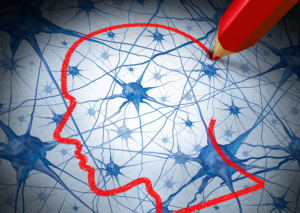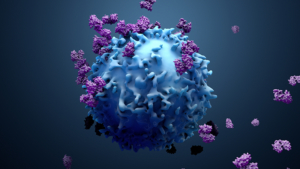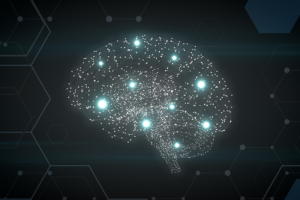This Creative Dementia Therapy Is Truly Life-Changing – and Fun!

Try this easy and creative dementia therapy technique to spark engagement in someone you love.
Have you ever experienced that jolt of a distant memory that suddenly pops to the forefront of your mind, perhaps through a song, a scent, an image from the past? For those with Alzheimer’s disease, the strength of long-term memory is particularly impactful, as short-term memory weakens. And it’s what has sparked a growing trend in a creative dementia therapy technique known as reminiscence therapy.
What Is Reminiscence Therapy?
In a nutshell, reminiscence therapy involves tapping into the long-term memory and past interests of someone with dementia. It’s a matter of understanding a period of life that the person enjoyed and remembers, and meeting them there through conversations, photos, and other memorabilia. The internet is a great resource for finding pictures and articles specific to whatever sparks the person’s interest and memory.
A much more elaborate example of reminiscence therapy in action is the transformation of a 9,000-square-foot building in Chula Vista, California, into an interactive 1950s town, complete with storefronts such as a diner, a movie theater, and a clinic, all in operation just as they would have been during that era. Further exploration of the facility will lead you to a 1959 T-Bird, large-scale military airplane models, and an office where staff peck away at manual typewriters.
In reality, this incredible facility is an ultra-engaging adult day/memory care unit. Scott Tarde, CEO, explains, “It definitely made sense to me to create an environment that resonated strongly with people, instead of just four walls and a television.”
Dr. Daniel Bateman, geriatric psychiatrist at the Indiana Alzheimer Disease Center, concurs: “It’s cutting edge and it’s exciting work. One of the great pieces about the concept is that it really focuses on maintaining the dignity and the humanity of people with dementia, which can often be lost.”
Of course, reminiscence therapy doesn’t need to be nearly this in-depth to be effective. At Responsive Home Care, we bring creative concepts such as these on a smaller scale into the homes of those with dementia, with specialized, person-centered, professional Alzheimer’s care. We get to know each individual’s life story, and incorporate those details into our plan of care to ensure that life is lived to the fullest each and every day.
Our specially trained dementia care team can make each day the best it can be for an older adult you love, through customized services such as:
- Preventing falls and wandering
- Engagement in meaningful and enjoyable activities
- Preparing meals and providing help with eating if needed
- Exercise and physical activity as encouraged by the doctor
- Accompanied transportation to fun outings, family get-togethers, appointments, etc.
- Creative tactics to manage challenging behaviors
- And much more
Caring for an older loved one with Alzheimer’s or another form of dementia isn’t easy, and can quickly lead to caregiver burnout or depression without support. We’re here to walk beside you every step of the way to ensure the person you love receives the highest level of care, and that you have the time you need to step away to take much-needed breaks.
Whether you need just a few hours each week of support, around-the-clock care, or anything in between, our dementia care team can help! Contact us at 954-486-6440 to learn more about our dementia care services in Davie, Parkland, Tamarac, and the surrounding areas, and to request a free in-home consultation.

 If there is one constant thing in the race to solve the puzzle of Alzheimer’s, it is change. It appears as though any time researchers start to get a grasp on one piece of information, new information shifts their hypotheses in an alternative direction. That is most certainly the situation with the amazing new developments in
If there is one constant thing in the race to solve the puzzle of Alzheimer’s, it is change. It appears as though any time researchers start to get a grasp on one piece of information, new information shifts their hypotheses in an alternative direction. That is most certainly the situation with the amazing new developments in 

